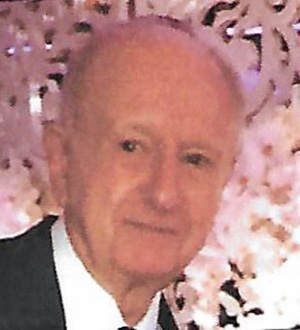
Part 9
(Continued from last week)
Although after the failure of the “Putsch,” in 1923, the NSDAP was forced to close, Hitler was able to reorganize it again in 1925. He accused the Jews in his speeches of being the founders of capitalism, and thereby was able to combine the democratic enemy with the Jewish enemy into one. Consequently, Hitler was able in the years 1925 to 1929 to collect to himself all anti-Semites, whose own organizations had fallen apart. As soon as the NSDAP had 100,000 members with many more camp-followers and sympathizers, other political organizations and parties sought their goodwill and support. The resulting weakness of the democratic parties enabled Hitler to create increasing disturbances and agitations around the country.
The “Centralverein deutscher Staatsbürger jüdischens Glaubens” (Central Organization of German citizens of Jewish Faith) pointed out the threatening actions in the state already in 1929. The warning was not listened to, and was considered exaggerated. The Jews stood alone in the coming storm.
At the elections on September 14, 1930, the NSDAP received over 18% of the total votes, propelling it from almost nothing to the second largest faction in Parliament. The success of the elections gave anti-Semitism a new quality. Anti-Semitism was now looked at more seriously even by those who in the past had never given it any support or even thoughts. In the publishing, newspaper, film and entertainment industries; mid-size companies; and banks, attention was given not to employ Jews anymore. Whenever possible Jewish employees were terminated. In small- and medium-sized towns, businesses parted company with their Jewish suppliers. Boycott against Jews did not become fashionable in 1933—it was already a proven method in the 1920s against small businesses, doctors and lawyers. Often so much pressure and threats were put against Jewish colleagues, that resignations were not uncommon.
When Jewish individuals or organizations complained to authorities about atrocities, the authorities often failed to act and considered the complaints as unjustified. Even the democratic Berliner Police chief Grzesinski told the representatives of the Jewish community during an interview that they should tone down their complaints and play down the massive and directed terror of the SA (brown shirts).
In 1931/32 Hitler rarely mentioned the Jews in his speeches. He reached out to those who were not anti-Semitic by pronouncing the danger of Marxism and democratic order; the latter included the Jews indirectly. He felt it was more important to switch those not yet in his fold by not emphasizing a policy that they had not yet accepted. Moreover, the majority of anti-Semites had already unified under his banner. He could afford to leave the handling of the massive actions and anti-Jewish demonstrations to his brown-shirted underlings, who seemed to be quite adept at it.
The inflation years 1918-1923 so deeply impressed the people, at least the responsible ones in politics, commerce and science, that out of fear of a repetition in the 1930s crisis, they opposed any action to create work or federal credit. The unused capacity of the people and the sinking of prices and loans did not justify their fear of another inflation. The federal government demanded that the NSDAP should not be pushed to the outside and be radicalized, even if their methods were still too raw and outrageous. When in 1928 the industry collapsed and in 1930 commerce and services were affected by the economic collapse, stabilization and normalization of the political life was interrupted. Disappearing tax income of the government was helped little by reduction of expenses since the government was the biggest employer. Reduction in purchases and dismissal of employees only aggravated the desperate situation, since it reduced the ability of the people to purchase needed materials. The result was further unemployment, and further reduction in tax intake. In 1932 there were 6 million unemployed, and many more on reduced work weeks. Government handouts were enough to put food on the table, but nothing was left over for clothing or other necessities.
It was no surprise that this condition had to result in some very bad situations. This turning in the direction of the NSDAP was not stopped even when the outrageous deeds by the SA were ignored and the murderers promoted. Nobody complained when the SA marched through the street, brought terror everywhere they went and sang in their loudest voices, “Blut muss fliessen, knüppelhageldick, wir pfeifen auf die Freiheit der Judenrepublik” (Blood must flow very thick, we whistle against the freedom of the Jew Republic).
I remember that awful “song” from my youth in Frankfurt. Still today it makes me shudder when I think of the fear it created in a young boy.
As long as the people lived in relative freedom, it was only human nature not to worry about what would happen when that freedom was gone. The large increase in membership in the NSDAP impressed many, who joined thinking that they would be able to obtain favors, or were afraid of the political or commercial consequences if they did not join. Staying away, at least initially, from the deeds of the NSDAP were small liberal, pacifist or religious groups who were not willing to sacrifice the people for the benefit of the state. But they had no attraction and no program to overcome the crisis and consequently lost all political influence.
(To be continued next week)
By Norbert Strauss










